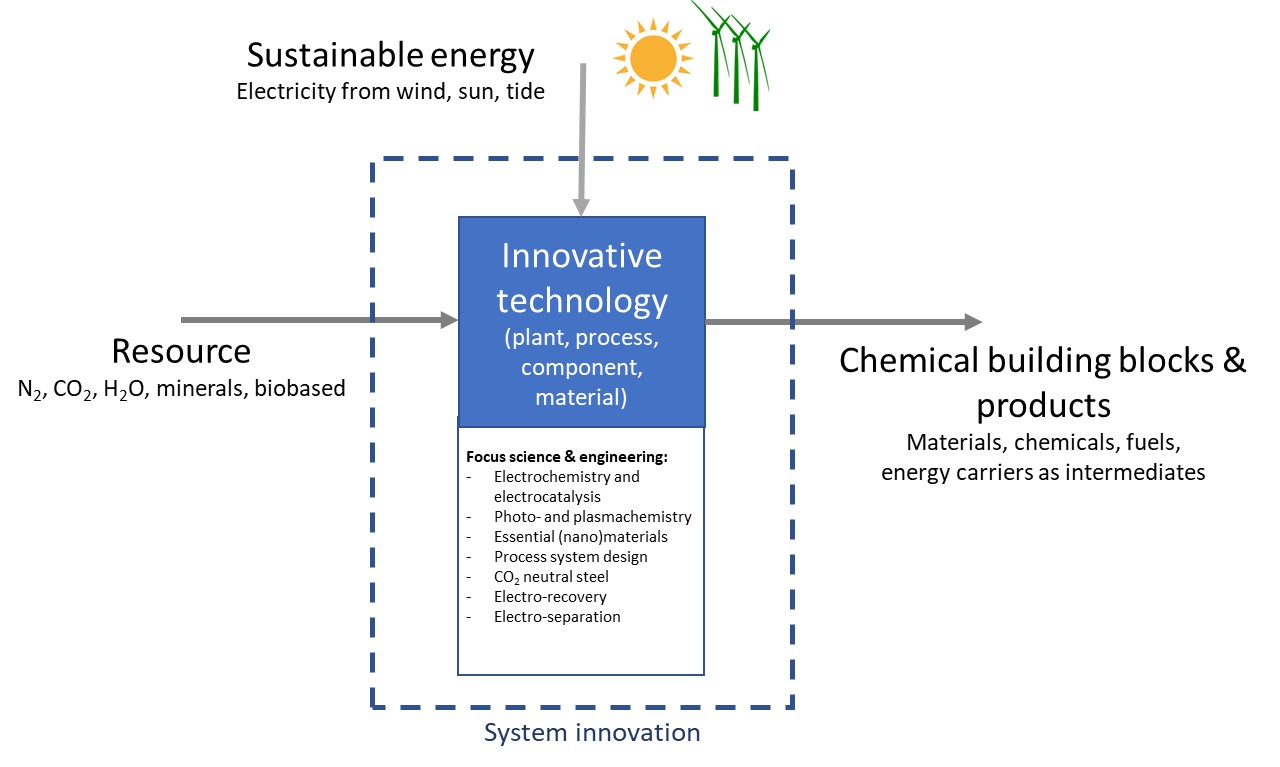Dutch conference on ElectroChemical Conversion & Materials
ECCM | 26 June 2020
We are excited to present to you an inspiring online afternoon with top-notch speakers and lively discussions.
Are you interested in the latest developments of electrification, electrochemistry and the energy transition? Join us on Friday 26 June from 1pm. Our international experts will start the conference by introducing the state of the art in ElectroChemical Conversion & Materials. They will discuss the role of ECCM in the energy transition, sharing the viewpoint of China, Germany, the US and the Netherlands. In the second half we will take you through some of the most prominent national initiatives in the field and the developments expected in the coming years. The yearly ECCM conference is organized by the ECCM advisory committee, appointed by the Dutch government.KEYNOTES – THE GLOBAL PERSPECTIVE
- Dr Kathy Ayers, Vice President Research and Development, Nel ASA / Proton Onsite, United States
- Dr Jiang Kejun, Director of the Energy Research Institute (ERI), National Development and Reform Commission, China
- Jochen Wermuth, Climate Impact Investor, Germany
- Marjan Minnesma MBA, Director Urgenda, The Netherlands

NATIONAL INITIATIVES
- Emmo Meijer, Chair Topsector Chemistry, on behalf of Topsectors Energy, High Tech Systems & Materials and Chemistry
- Richard van de Sanden, Chair of the ECCM committee and Director of DIFFER
- Paulien Herder, Professor of Energy Systems, Delft University of Technology
- Guido Mul, Head of the PhotoCatalytic Synthesis group, University of Twente
- Earl Goetheer, Principal scientist process technology, TNO
- ECCM Tenure Trackers

Scope of the conference
In the near future, renewable electricity will play a major role in the transition to a low carbon energy economy. This transition will be facilitated by CO2 targets determined by national governments and will require extensive electrification. However, the need will persist for other fuel sources (for aviation, shipping and heavy road transport) and for chemical products and materials. These activities and associated production processes are now responsible for more than 35% of global CO2emissions. The big challenge is therefore to produce these fuels and chemical products via renewable electricity, starting from biomass and/or CO2.
In addition, science and technology need to solve the imbalance between production and consumption of electricity. These solutions lie in connecting networks and production capacity (interconnection), organizing an optimal balance of supply and demand, and in the direct storage of electrical energy. Storage of electricity in batteries or similar systems is one option; electrochemical production of chemicals as an energy carrier is another option. Electrochemical conversion is especially promising for long-term storage as this technology is easily scalable to the amount of energy.
During the conference, international keynotes will take us through the state of the art in science and technology, from an academic and industrial perspective. Dutch experts will share their insight on national initiatives related to the ECCM theme.
- Friday 26 June 2020, 13:00 – 16:30
- Click here for the programme
- Please note: we might not be able to accommodate everyone, so make sure to reserve your place by registering as soon as possible.

Background information on the ECCM advisory committee
The Advisory Committee for Electrochemical Conversion & Materials (ECCM) advises the Dutch government to make the transition to a CO2 neutral industry based on intermittent sustainable energy generation, storage and conversion. The committee was established by the top sectors HTSM, Energy and Chemistry, with support from NWO and TNO and in collaboration with the Ministries of Economic Affairs & Climate Policy (EZK), the Ministry of Education, Culture and Science (OCW) and the Dutch National Research Agenda (NWA).
ECCM is the cross-sectoral theme to achieve the above-mentioned transition objective. The committee coordinates efforts in the field of ECCM at national level, by initiating new cooperation initiatives and by adopting initiatives that fit within the scope of the advisory report that the committee has published. From a national perspective, the committee advises the government on what efforts are needed to collaborate throughout the innovation chain.
In addition, the committee is busy building an ECCM community of knowledge institutions, companies, governments and NGOs. To this end, the committee organizes conferences in the field of ECCM and an annual graduate school. More information: www.co2neutraalin2050.nl.
Contact ECCM secretariat
w. www.CO2neutraalin2050.nl // e. secretariaat@eccm-mail.nl // +3170 349 43 02